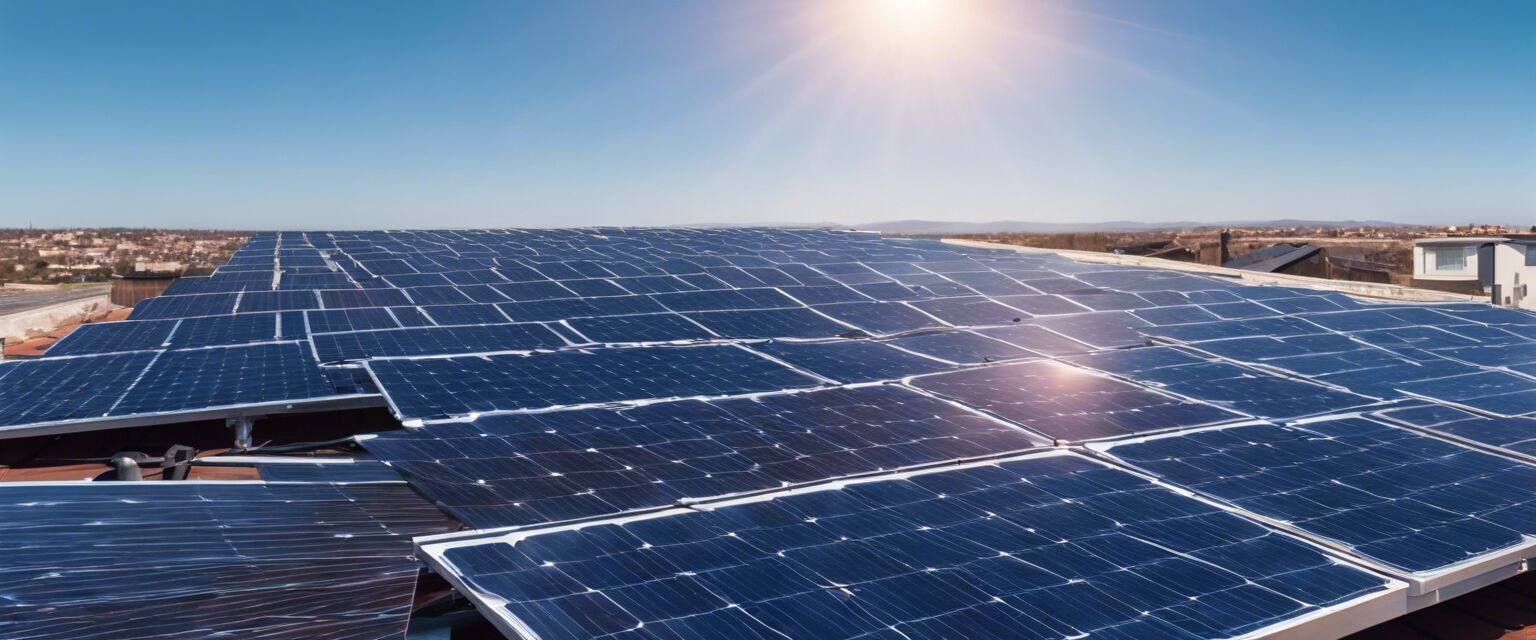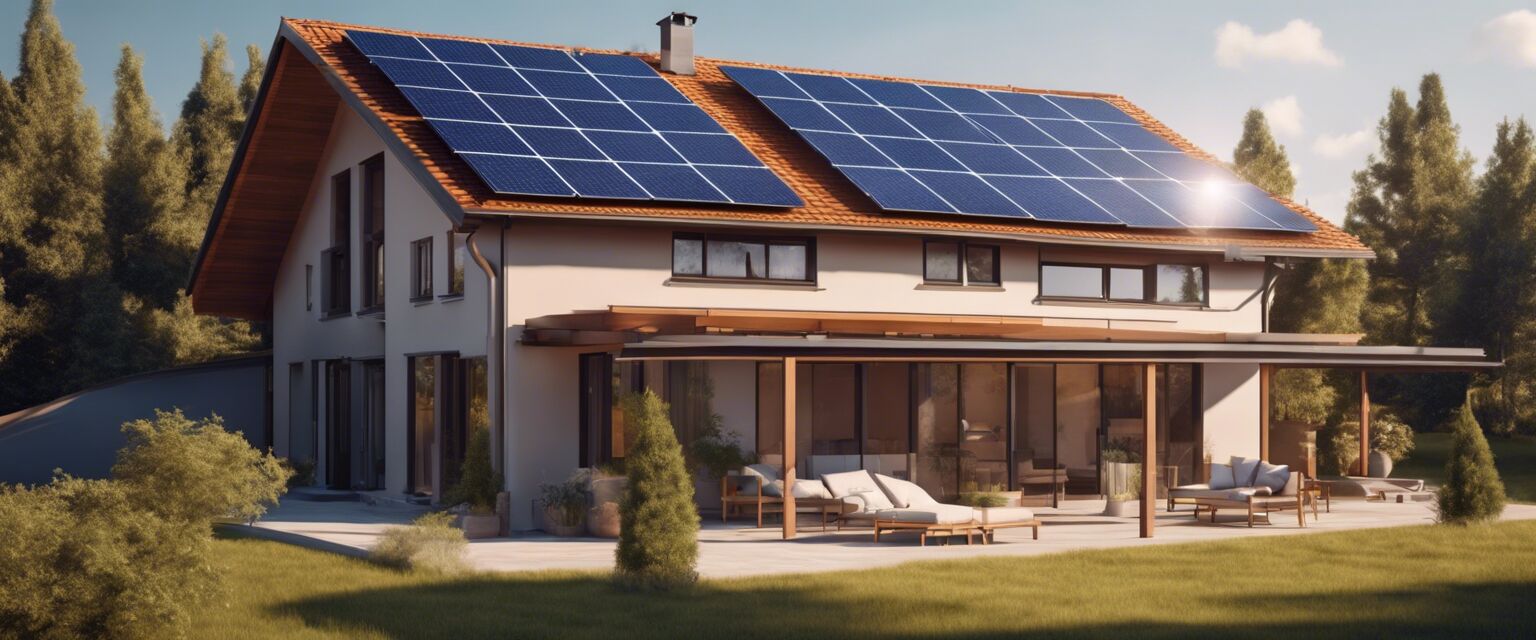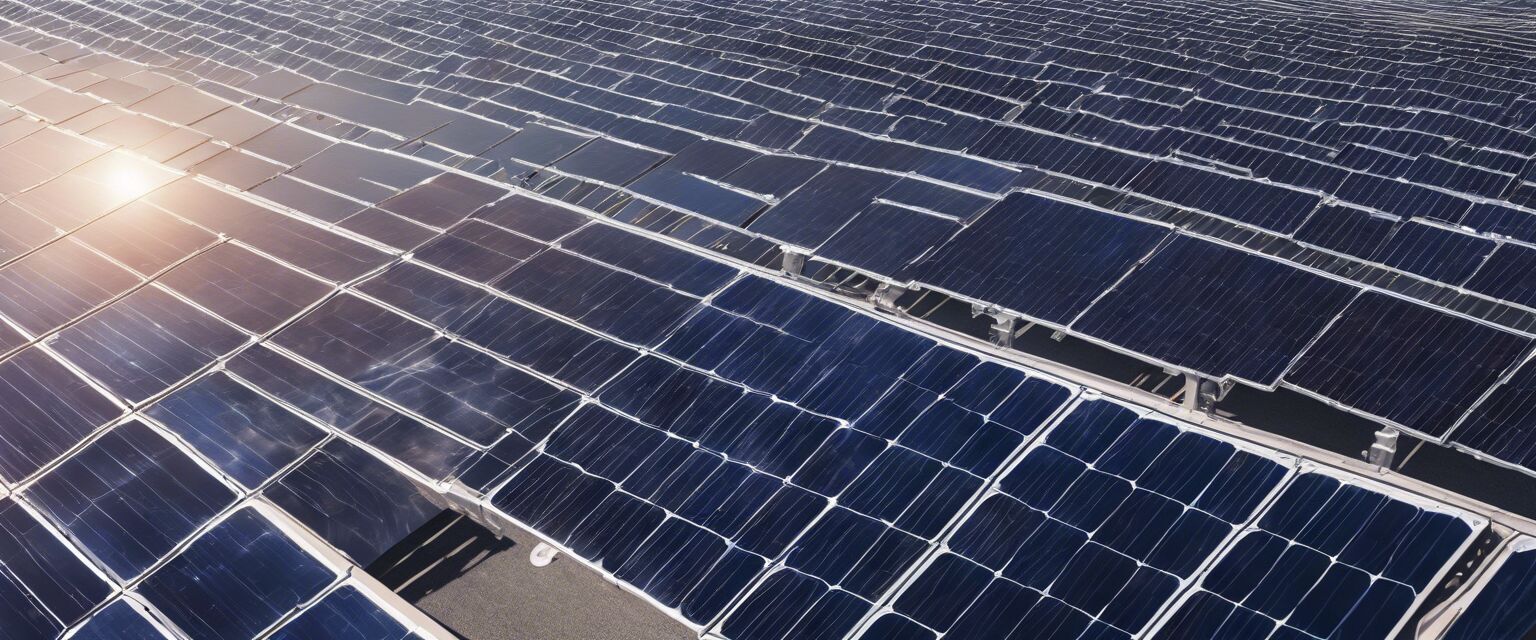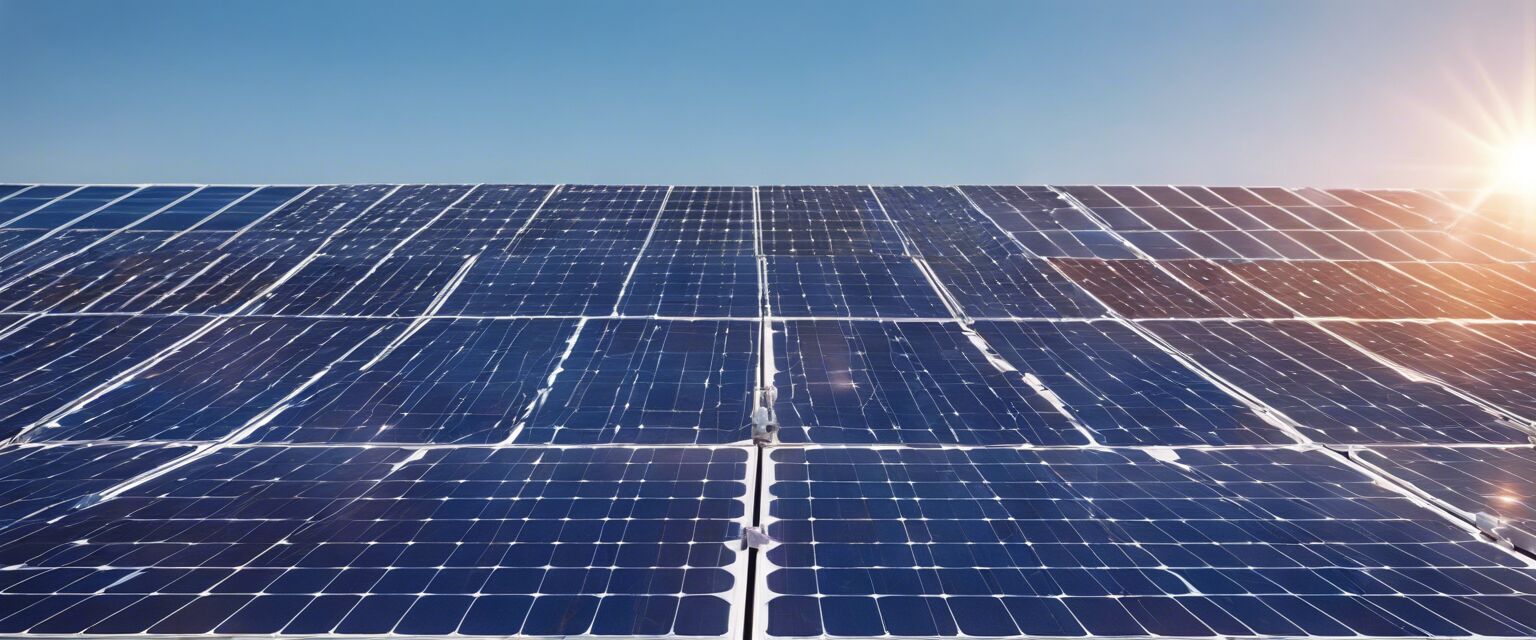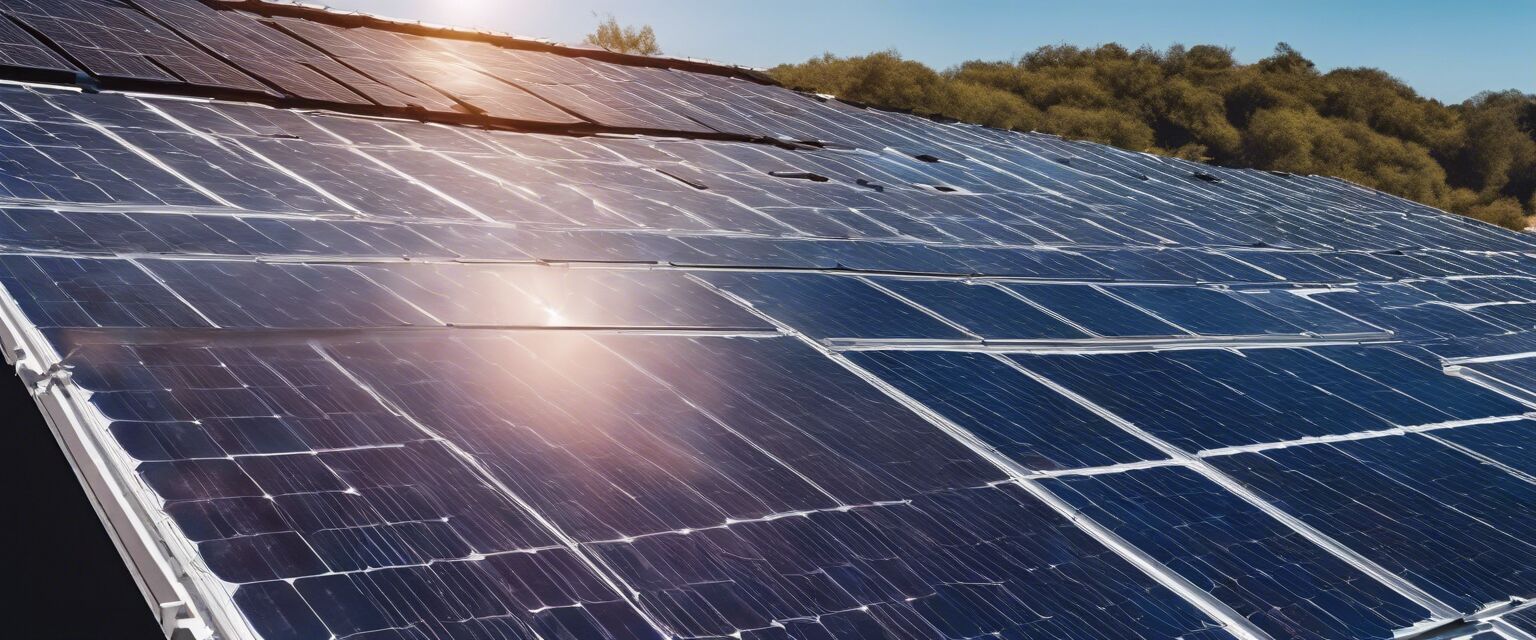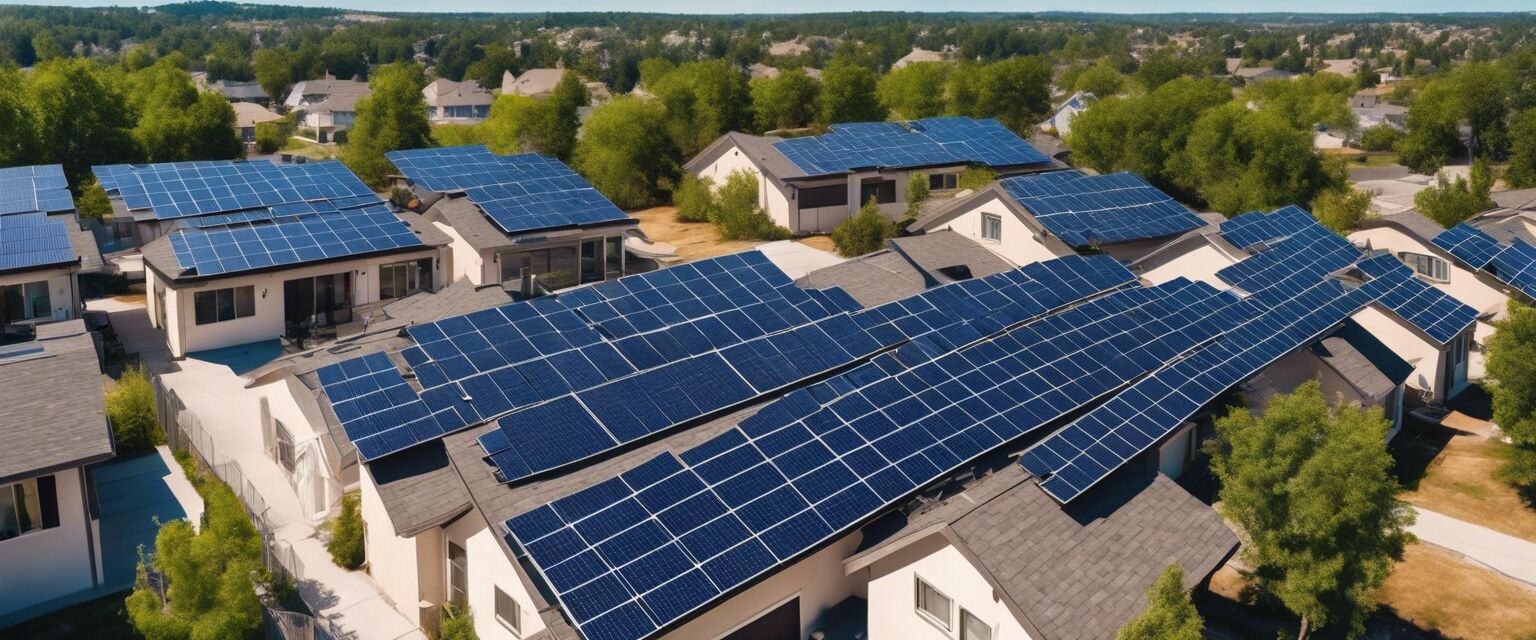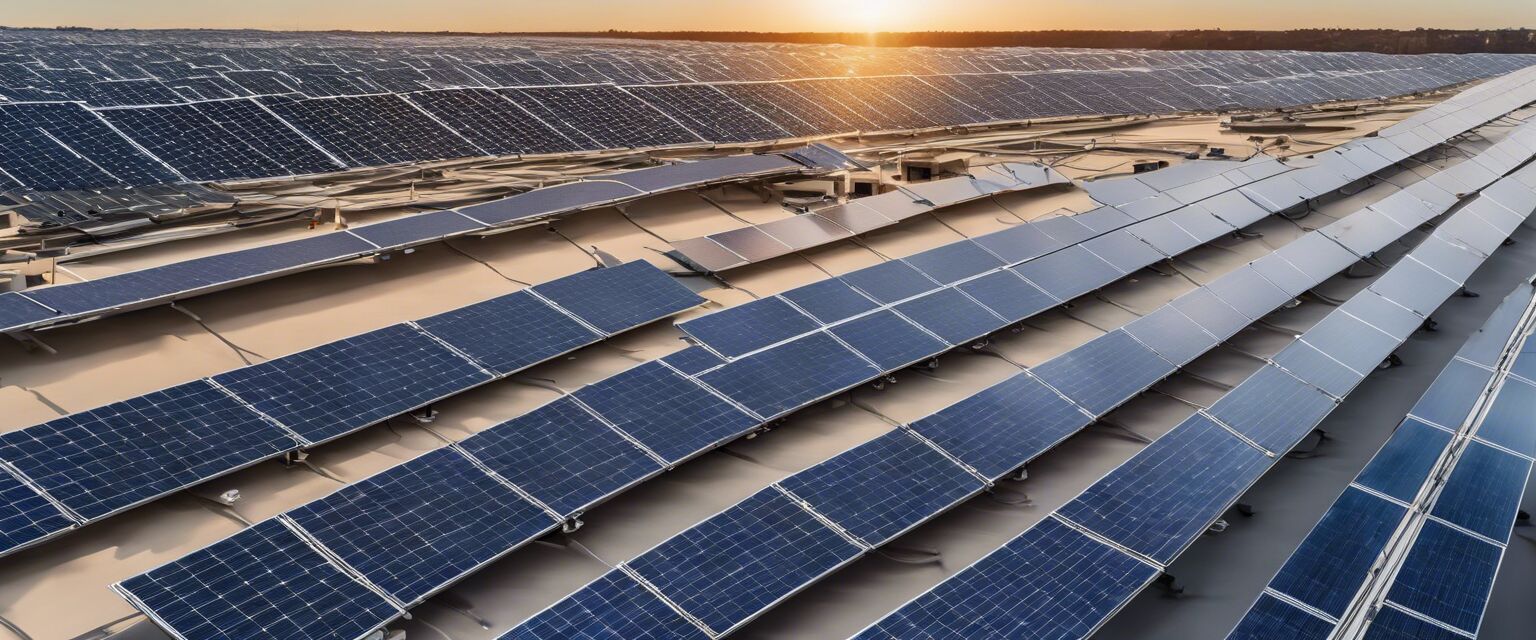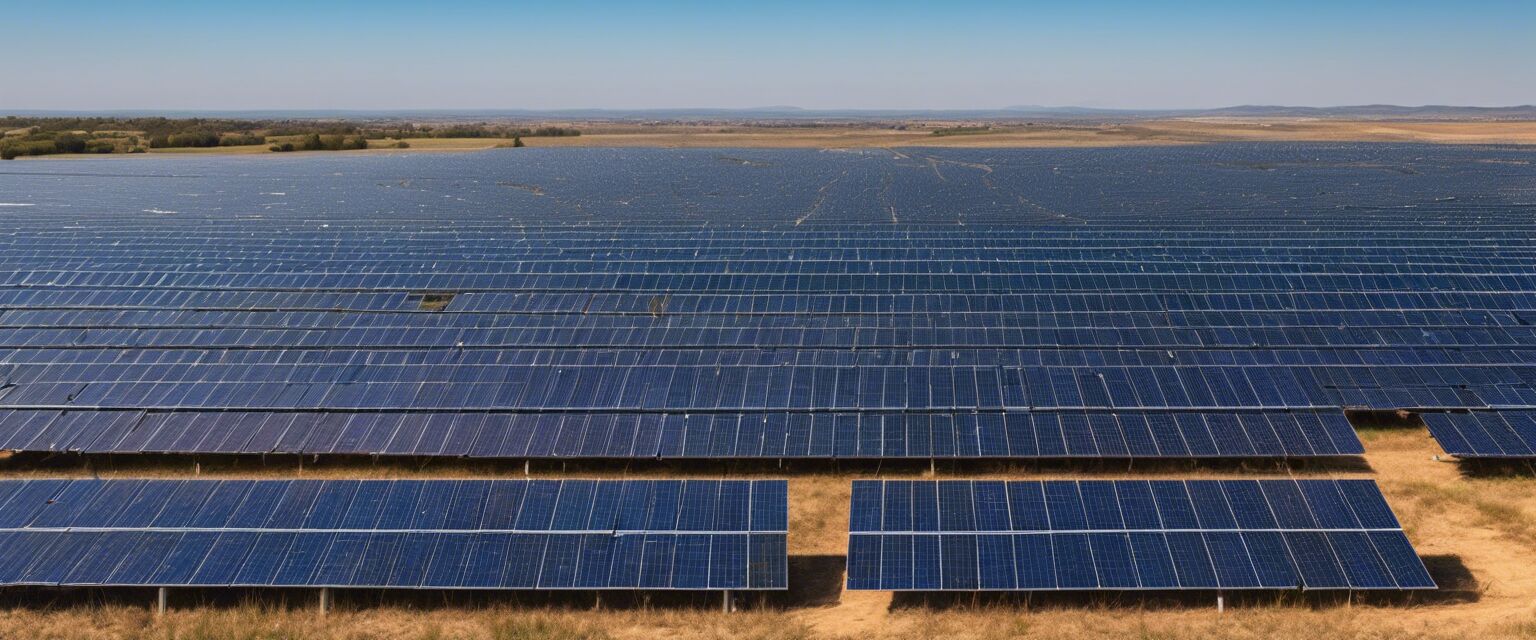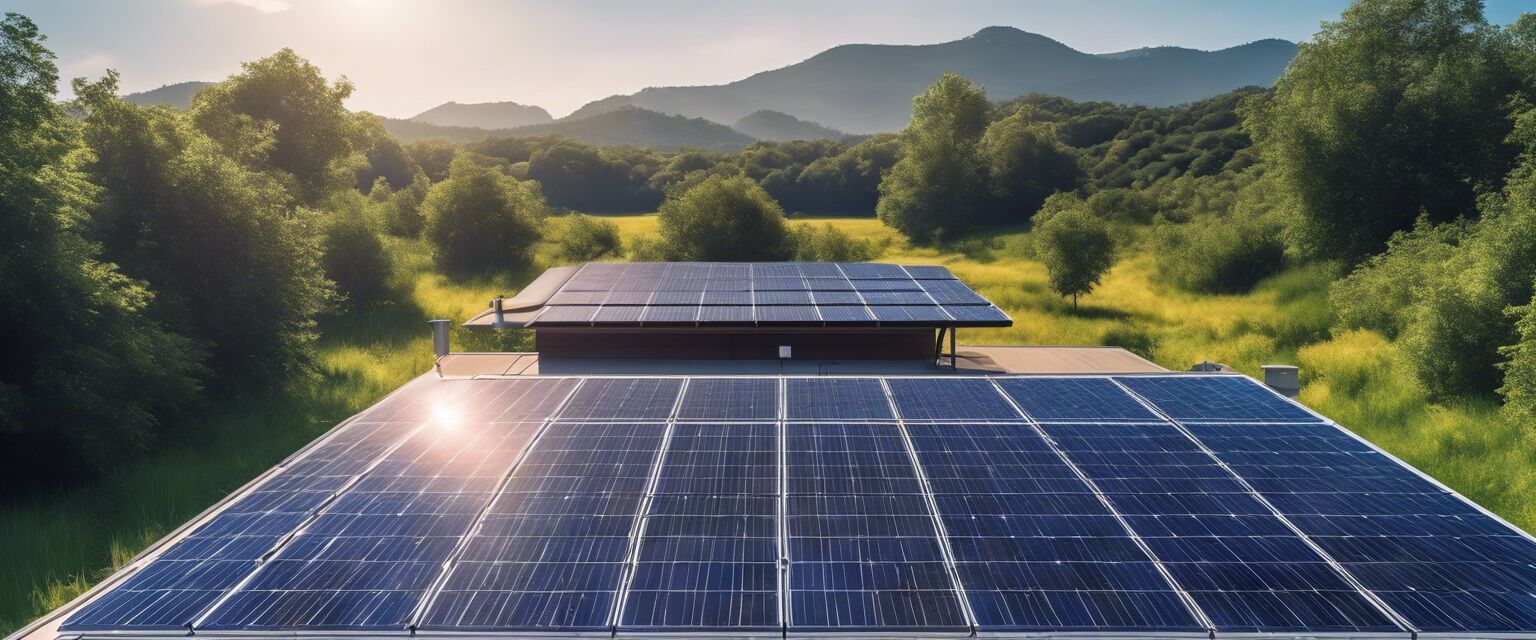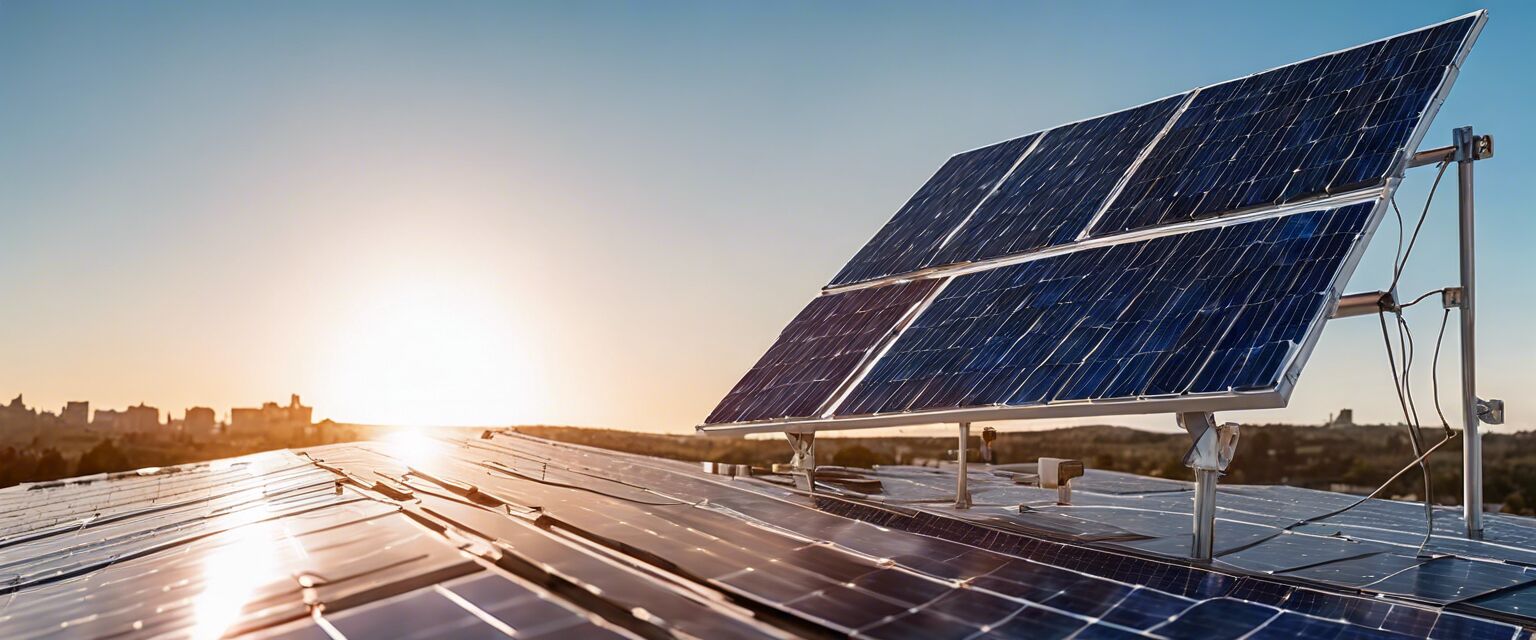
Solar Energy Efficiency
Understanding solar energy efficiency is crucial for maximizing the benefits of solar panel systems. In this guide, we explore various methods, tips, and technologies that can help enhance the efficiency of solar energy systems.
Key Takeaways
- Regular maintenance and cleaning of solar panels are essential for optimal performance.
- Choosing the right location and angle for installation can significantly boost energy production.
- Utilizing energy storage solutions can improve overall system efficiency.
- Investing in high-quality solar inverters can lead to better conversion rates of solar energy.
Understanding Solar Energy Efficiency
Solar energy efficiency refers to how well solar panels convert sunlight into usable electricity. The efficiency of a solar panel is determined by its design, materials, and technology used. Here are some key components that affect solar energy efficiency:
Key Components Affecting Efficiency
| Component | Impact on Efficiency |
|---|---|
| Solar Panel Type | The type of solar panel (monocrystalline, polycrystalline, thin-film) affects its efficiency levels. |
| Inverter Technology | Quality inverters increase the conversion rate of solar power. |
| Installation Angle | Panels should be angled appropriately to maximize sunlight exposure throughout the day. |
| Shading | Obstructions can significantly reduce the performance of solar panels. |
| Temperature | High temperatures can reduce solar panel efficiency; cooler environments yield better performance. |
Maximizing Solar Energy Efficiency
To ensure optimal performance from your solar panels, consider the following strategies:
1. Regular Maintenance
Keep solar panels clean and well-maintained. Dust, debris, and other materials can block sunlight and reduce efficiency. Regular cleaning will help maintain optimal performance.
2. Optimal Installation
When installing solar panels, aim for the correct angle that allows sunlight to hit the panels perpendicularly. This maximizes the light absorbed.
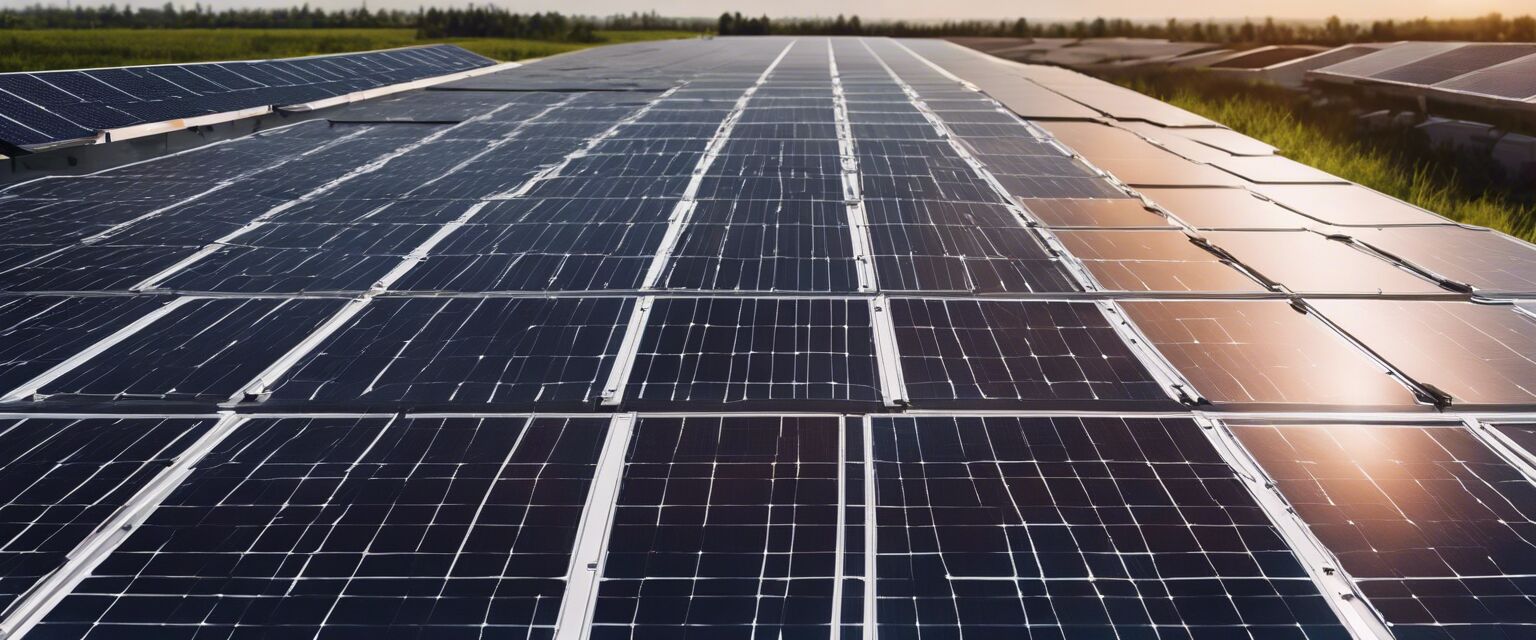
3. Invest in Quality Components
Using high-quality solar panels, inverters, and other equipment ensures better durability and efficiency. Look for reputable solar inverters to enhance your system's output.
4. Energy Storage Solutions
Using solar batteries allows homeowners to store excess energy produced during the day for use at night. This can improve overall energy efficiency and independence from the grid.
5. Monitor Performance
Regularly checking the performance of your solar panel system can help identify areas for improvement. Using monitoring tools can alert you to issues early on.
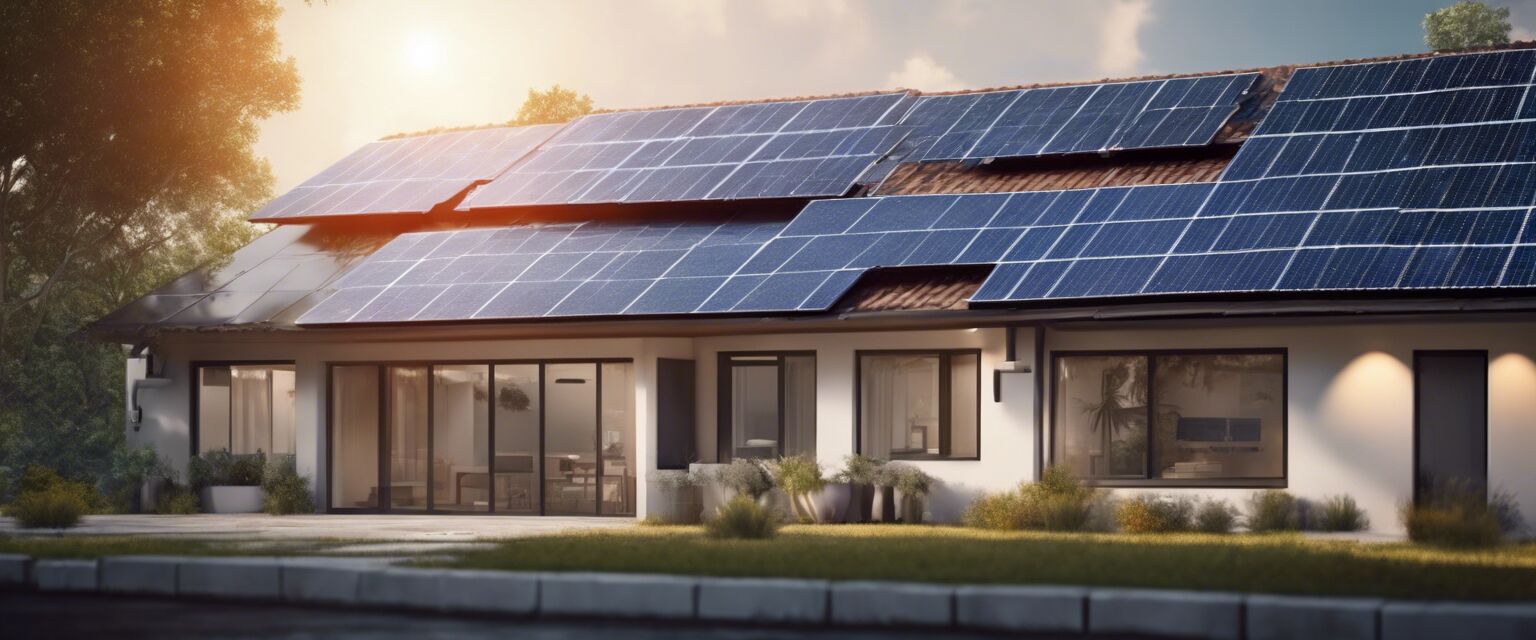
Innovative Technologies to Consider
Several new technologies can help increase solar energy efficiency:
- **Bifacial Solar Panels**: These absorb sunlight from both sides for increased energy production.
- **Tracking Systems**: These systems move solar panels to follow the sun's path, maximizing light exposure.
- **Microinverters**: Instead of a single inverter, each panel has its microinverter which can increase efficiency and monitoring capabilities.
- **Building-Integrated Photovoltaics (BIPV)**: This technology integrates solar panels into buildings, serving as both a power source and a building material.
Common Issues Affecting Solar Energy Efficiency
Be aware of these issues that can hinder your solar panel productivity:
Common Issues
- Shading: Ensure that no objects obstruct your solar panels.
- Dirty Panels: Regular cleaning can prevent dirt accumulation.
- Improper Installation: Engage professionals to ensure proper setup.
- Rising Temperatures: Keep panels cool where possible.
Conclusion
Improving the efficiency of solar energy systems requires a blend of proper installation, ongoing maintenance, and quality technology. Regularly assessing your solar panel setup can lead to better energy results and overall cost savings. Enhancing solar efficiency not only benefits homeowners but also contributes to a more sustainable future.
Pros
- Reduces electricity bills
- Increases property value
- Environmentally friendly solution
- Low maintenance costs
Cons
- High initial investment
- Efficiency affected by weather conditions
- Space requirements for installation
- Dependence on battery systems for off-grid power
Further Resources
For more information, check out these related pages:
